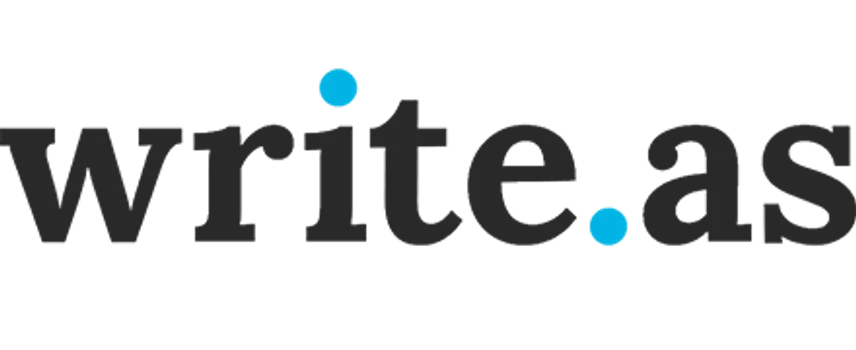5 best free blogging platforms : An ultimate guide in august 2024
Discover how to choose the right free blogging platform with tips on ease of use, customization, costs, features, and support for a seamless blogging experience.

In the ever-evolving digital landscape, selecting the right blogging platform is crucial for creating and maintaining a successful blog. Whether you’re a seasoned writer or a beginner, the platform you choose can greatly influence your blog’s design, functionality, and overall reach.
Popular platforms like WordPress, Blogger, and Squarespace offer diverse features to suit different needs. WordPress, known for its flexibility and extensive plugin library, is ideal for those who want complete control over their blog’s customization. Blogger, owned by Google, provides a simpler, user-friendly interface perfect for beginners or those who prefer straightforward blogging without the need for extensive technical skills. Squarespace stands out with its sleek, modern design templates, making it a top choice for creatives and businesses looking to showcase visual content.
Each platform comes with its unique set of pros and cons. WordPress offers vast customization but may require more technical know-how. Blogger is easy to use but may lack advanced features for scaling a blog. Squarespace offers beautiful design options but can be more expensive compared to others.
Ultimately, the best blogging platform depends on your specific goals, whether it's to share personal stories, build a professional brand, or even monetize your content. Take the time to explore each option, considering factors like ease of use, customization, cost, and scalability, to find the perfect fit for your blogging journey.
Read Digimagg's Review
WordPress’s blend of flexibility, ease of use, and a robust community makes it an ideal choice for a variety of websites, from personal blogs to large corporate sites. Its open-source nature means it is continually updated and improved by a global community of developers, ensuring that it remains at the forefront of web technology.
Whether you’re starting a blog, launching an online store, or building a professional portfolio, WordPress provides the tools and support needed to create a successful and dynamic online presence.
The Best Free Blogging Platforms of 2024 (August 2024)

 SEO-friendly
SEO-friendly Flexibility and customization
Flexibility and customization Open source and cost-effective
Open source and cost-effective Large community and support
Large community and support.png) Performance and speed
Performance and speed.png) Maintenance and updates
Maintenance and updates.png) Learning curve for advanced customization
Learning curve for advanced customization
Read Digimagg's Review
Wix is a leading website builder that simplifies the process of creating and managing a professional-looking website. Renowned for its ease of use and versatility, Wix caters to a diverse range of users, from personal bloggers to small businesses and large enterprises.

 Mobile optimization
Mobile optimization Hosting and domain
Hosting and domain Drag-and-drop editor
Drag-and-drop editor Templates and design options
Templates and design options.png) SEO limitations
SEO limitations.png) Performance issues
Performance issues.png) Exporting and migration
Exporting and migration
Read Digimagg's Review
Craft CMS is a robust content management system designed for developers and designers who seek flexibility and control over their website projects. Renowned for its powerful features and ease of customization, Craft CMS is an ideal choice for creating bespoke websites with a focus on performance and scalability.

 Advanced SEO features
Advanced SEO features Performance and scalability
Performance and scalability User-friendly control panel
User-friendly control panel Flexible content management
Flexible content management.png) Development-heavy
Development-heavy.png) Limited built-In features
Limited built-In features
Read Digimagg's Review
Write.as is a minimalist blogging platform designed for users who value privacy, simplicity, and straightforward content creation. Unlike traditional blogging platforms that offer extensive customization options, Write.as focuses on providing a clean and distraction-free writing experience. Write.as emphasizes a minimalist approach to blogging. Its user-friendly interface and distraction-free editor are designed to help writers focus solely on their content, without the clutter of complex settings and features.

 Custom domains
Custom domains Minimalist design
Minimalist design No ads or tracking
No ads or tracking Privacy and anonymity
Privacy and anonymity.png) No built-in monetization
No built-in monetization.png) Less community and support
Less community and support
Read Digimagg's Review
Medium is a popular blogging platform where anyone can publish content, similar to creating a profile on Facebook or LinkedIn. By simply signing up and creating a profile, users can start writing and sharing their articles. Medium boasts a significant audience, with 100 million users and a 140% annual increase in visitors since its launch in 2012. You can use Medium to create either a personal blog or a publication with a branded domain. However, a free Medium blog has limitations. You can't design the website extensively or use a custom domain that reflects your brand. Additionally, you can’t have multiple contributors to your blog. Medium Publications offer a solution to these constraints, but require a subscription at $5 per month. With a subscription, you gain access to features like a custom domain, promotional blocks for your publication’s homepage, links to feature pages, lead generation forms, background colors, image options, and call-to-action buttons. You can also invite multiple contributors based on their expertise and engage readers by sending stories directly to their inboxes.

 No setup costs
No setup costs Content discovery
Content discovery Community engagement
Community engagement.png) Limited customization
Limited customization.png) No multiple contributors on free plan
No multiple contributors on free plan
Methodology
In creating our list of top blogging platforms, assessed various providers to ensure a range of options that cater to different technical skill levels and blogging needs. We evaluated platforms based on several key criteria:
- Ease of use: We sought platforms that deliver a user-friendly blogging experience, accommodating a range of expertise from beginners with no design experience to seasoned developers. The goal was to offer a selection that suits diverse needs.
- Cost and fees: We included both free and paid platforms. While emphasizing options that allow users to start blogging at no cost, we also considered platforms with premium features that enhance the blogging experience as users' needs and budgets expand.
- Customization options: We featured platforms with varying degrees of customization, from those with minimal customization but a straightforward user experience to those offering extensive control over HTML, CSS, and JavaScript for detailed site customization.
- Features and functionality: We assessed platforms based on additional features such as marketing tools, search engine optimization (SEO) capabilities, e-commerce support, rich media integration, mobile responsiveness, and analytics.
- Customer support: While acknowledging that free versions might not provide premium support, we prioritized platforms offering some level of customer assistance, such as community forums or email support, to ensure users have access to help when needed.
How to choose a free blogging platform
When selecting a free blogging platform, several key factors should guide your decision to ensure it meets both your immediate and long-term needs:
- Ease of use: Consider how user-friendly the platform is for building and managing your blog. Some platforms provide an intuitive, pre-built blogging environment where you can quickly set up your profile and start publishing posts. If you need a custom-designed blog site, evaluate how straightforward the design process is. For those without coding skills, look for platforms with drag-and-drop builders that simplify the design process.
- Customization options: Different platforms offer varying levels of customization. Some provide a minimalist setup with limited customization capabilities, while others allow for more detailed adjustments such as changing background colors, adding pre-built content blocks, or incorporating specific blog features. For deeper customization, including modifying HTML, CSS, or JavaScript, select a platform that supports advanced editing. Determine the level of customization you require and choose a platform that aligns with your needs.
- Cost analysis: Even if you choose a free platform, there may be additional costs to consider. For example, open-source platforms often require separate payments for web hosting and custom domains. Similarly, free versions of website builders like Wix and Weebly might not include a custom domain, necessitating an upgrade to a paid plan for a branded website. Conduct a thorough cost analysis to understand both the short-term and long-term expenses associated with the platform to ensure it fits your budget.
- Features and functionality: Evaluate the additional features offered by the platform. Some free blogging platforms come with essential tools and features such as SEO capabilities, mobile responsiveness, and basic analytics. For more advanced needs, such as marketing tools, e-commerce integration, or extensive analytics, you may need to consider platforms with premium options or paid plans.
- Support and resources: Check what kind of support and resources are available. Free platforms may offer limited support, but having access to a community forum, help documentation, or email support can be valuable. Ensure that the platform provides adequate resources to assist you in resolving issues or optimizing your blogging experience.
By carefully evaluating these factors, you can choose a free blogging platform that not only meets your current requirements but also supports your growth and evolving needs over time.







































.png)








